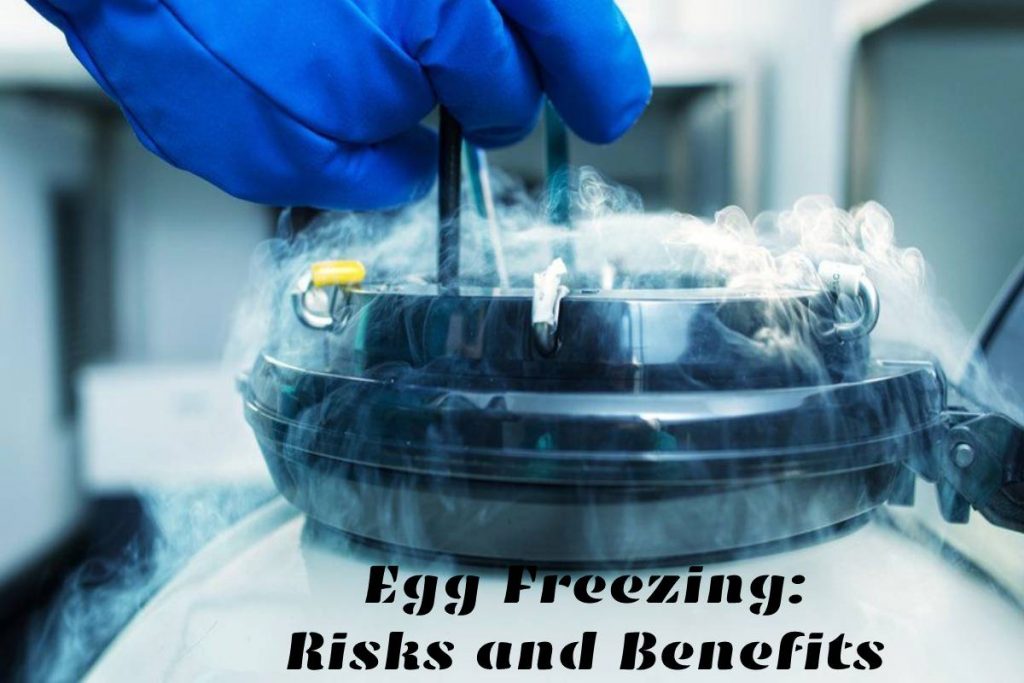Many women want to hold off on having children until they have finished college and established a career. Being able to meet the financial responsibilities of pregnancy and child rearing are primary reasons women want to wait to have children. An option available is egg freezing where a woman’s eggs are harvested and frozen for later use during in vitro fertilization. There are some risks and benefits to the practice, but overall it is a safe, effective way to approach family planning. Dr. Peyman Saadat, board certified OB/GYN has helped many families with fertility issues.
Table of Contents
What is Egg Freezing?
Simply put, egg freezing involved the hormonal stimulation of the ovaries to produce eggs more rapidly. The eggs are then removed trans-vaginally, and the viable eggs are frozen and stored for future use. Eggs can be frozen using one of two methods as outlined below:
- Slow-freezing: during this method, the eggs are slowly cooled until they reach a temperature of -196 degrees Celsius. They are then stored until the woman wants to undergo in vitro fertilization (IVF). This process can take hours and runs the risk of ice crystals forming in the eggs. These ice crystals can cause damage to the eggs making them no longer viable.
- Vitrification: in this process, viable eggs are immersed directly into liquid nitrogen to quickly reduce their temperature to -196 degrees Celsius. This process is almost instantaneous and makes the eggs more glass-like. This method reduces the risk of ice crystals forming and damaging the eggs.
How Effective are Frozen Eggs?
One question that may come to mind is the effectiveness of freezing eggs and thawing them out later for implantation. According to the ASRM-SART, eggs frozen through vitrification have a survival rate between 90 and 97 percent. The fertility rate is between 71 and 79 percent with a 17 to 41 percent implantation rate in eggs harvested from women younger than 30 years old. As women age, the viability of eggs (or oocytes) declines.
Benefits of Egg Freezing
There are a number of benefits of freezing eggs for future use, including:
- Egg freezing can help women who are diagnosed with cancer undergo treatments that may potentially cause fertility issues in the future. With egg freezing, these women still have the potential have carry and birth a biological child from their own eggs after they have completed treatment.
- Freezing eggs can also help women who know they want to wait until later in life to have children. Harvesting their eggs at a younger age helps maintain the viability of the egg and reduce the risks of certain birth defects that are more common in older mothers.
- Women who do not have a partner but want to have children later in life can also benefit from egg freezing. This will help preserve their reproductive options if they get a partner later in life, or if they decide to use a sperm donor later in life.
Risks of Egg Freezing
While egg freezing has some amazing benefits, like many procedures there are some risks. These risks include:
- There is limited information on the long-term effects of ovary stimulation and egg retrieval. Most of the data is based on experiences of older populations than younger potential mothers. So it is especially important that younger women be advised of the limited data and the demographics of most of the data available.
- Some side effects of ovary hyper-stimulation are:
- tiredness/fatigue
- headaches
- nausea
- abdominal cramping
- tender breasts
- irritability/moodiness
- rare side effects can include blood clots, shortness of breath, dehydration and vomiting. These rare effects require immediate medical attention.
- There are conflicting reports on if hyper-stimulation of the ovaries leads to certain cancers such as breast or uterine cancers.
- With IVF there are also risks, such as:
- multiple pregnancy (twins, triplets or more)
- pregnancy-related high blood pressure
- premature delivery
- delivery via cesarean section
- low birth weight
- Women who are freezing eggs for implantation later in life should also be made aware of the risks of pregnancy after the age of 35. These risks include:
- increased risk of gestational diabetes
- preeclampsia
- premature delivery and low birth weight
- cesarean delivery
- slight increased risk of genetic abnormalities in the child.
- The cost associated with egg freezing and IVF can be expensive and insurance doesn’t always cover these procedures.
Egg freezing is giving women more options and more control over childbearing and their bodies. It is providing hope for women undergoing cancer treatment and those who wish to wait until they are financially and emotionally ready for child rearing. For more information contact Dr. Saadat and learn more about egg freezing and IVF treatments.
